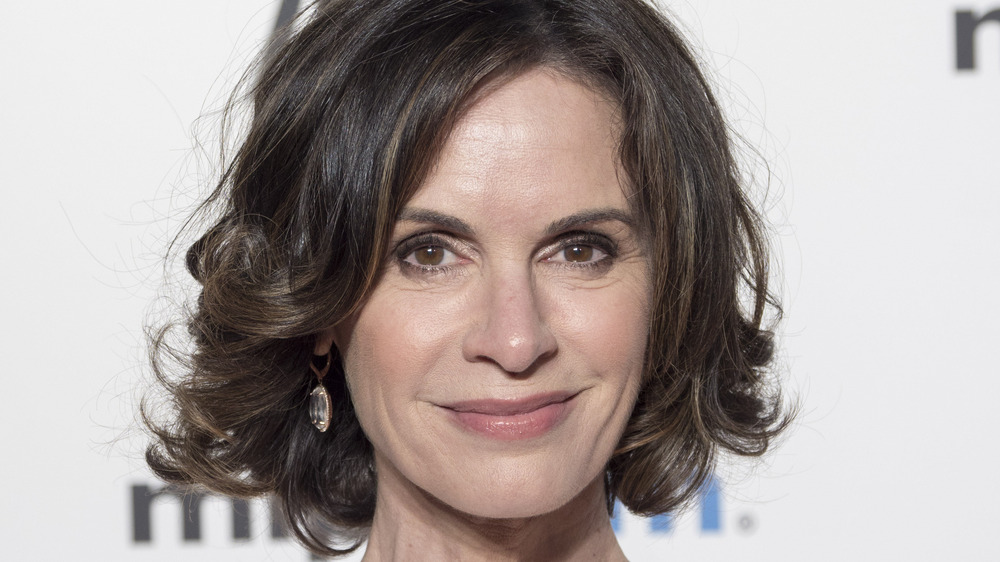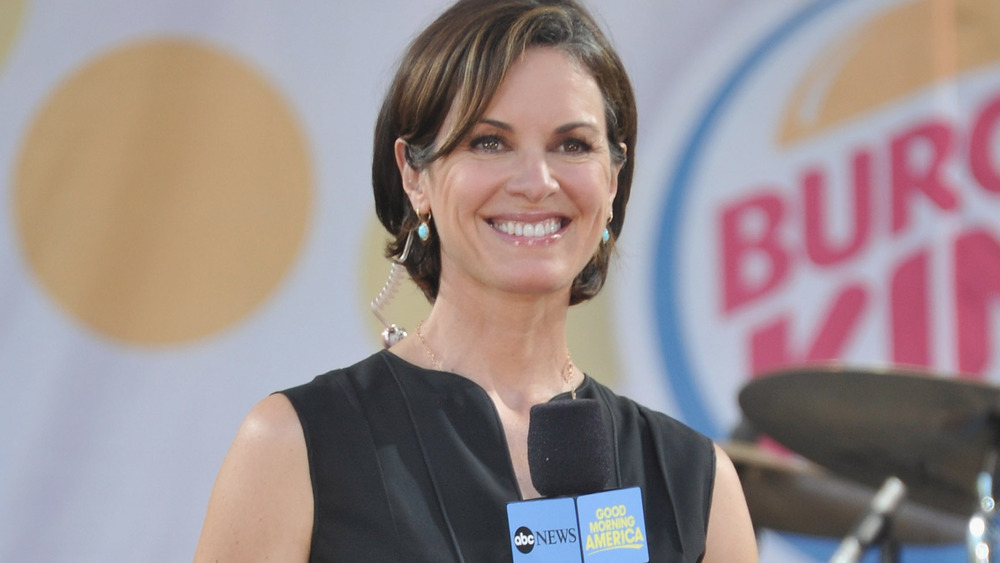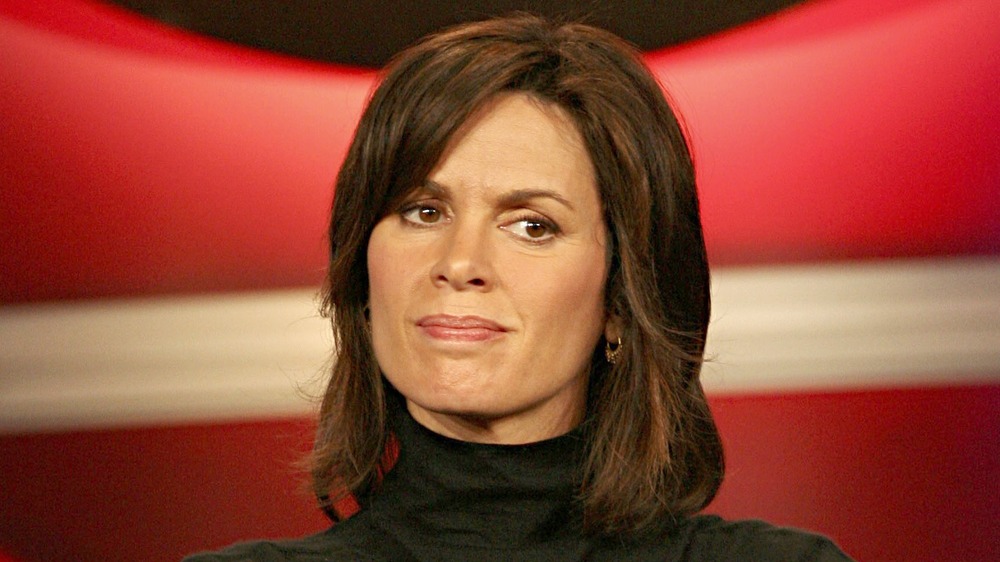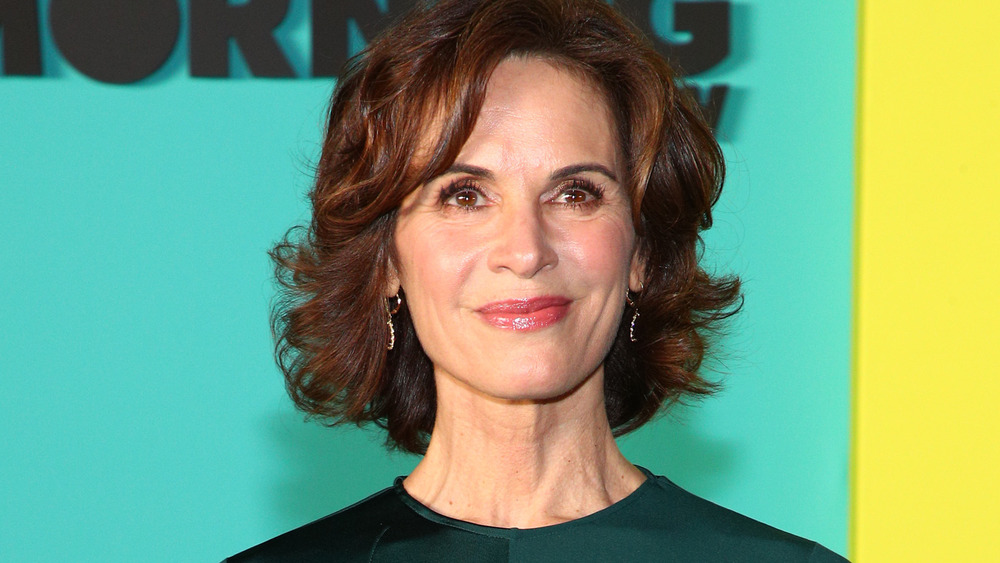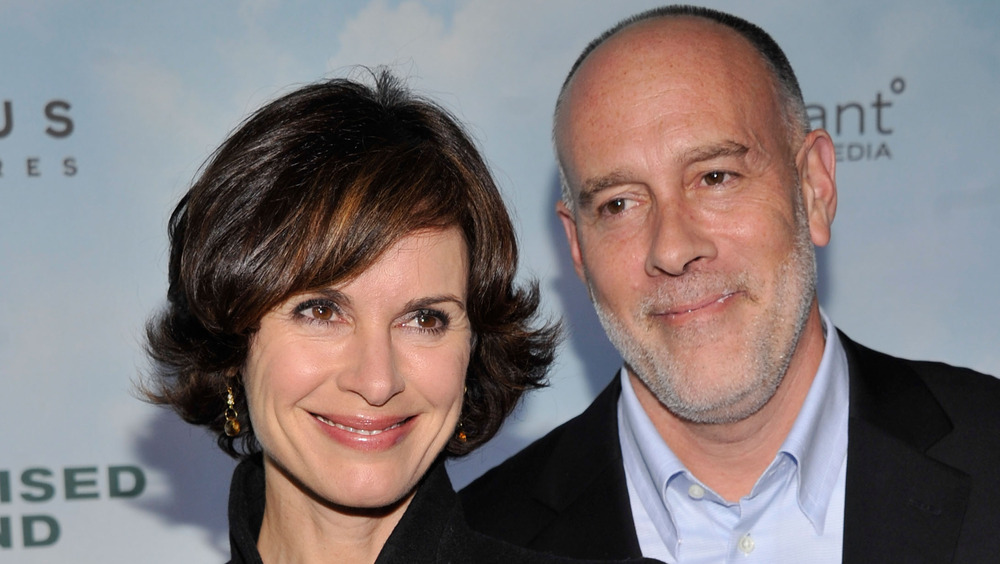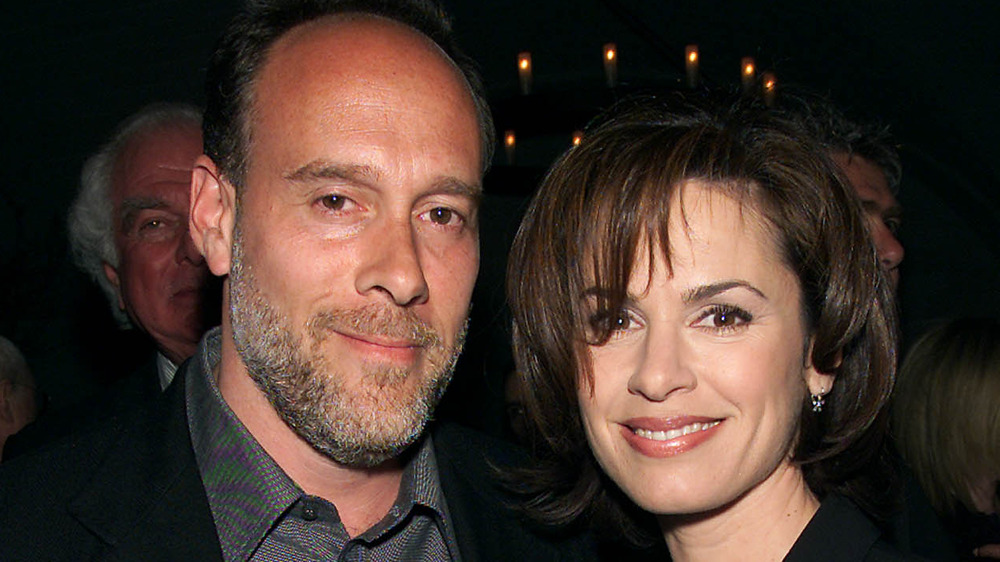Tragic Details About Elizabeth Vargas
Elizabeth Vargas embodies all the qualities of a successful television journalist, anchor, and reporter: She presents herself as a smart, curious, and authoritative voice of reason and deliverer of facts. These skills and this persona have suited her well, as she's been a reliable newsperson for nearly 30 years, first on NBC newsmagazine shows and later as a co-host of ABC's Good Morning America and as an anchor of 20/20 and World News Tonight. In recent years, Vargas left the daily news grind in favor of long-form reporting on the A&E Network and hosting the rebooted criminal-thwarting public service show America's Most Wanted for Fox.
Vargas has researched, reported, filed, and interpreted thousands of affecting tales of human interest over her decades as a journalist. Behind the scenes, her story has been just as newsworthy, and at times, just as harrowing as the stories she's delivered. Here's a look into the struggles and heartbreaking events in the life of Elizabeth Vargas.
Good Morning America 'didn't pan out' for Elizabeth Vargas
While there isn't physical bodily harm, or death, or disease involved, extreme workplace stress and disappointment — and if it's all made common knowledge in the media if it involves public figures — can certainly prove difficult for the people who have to suffer through it. After getting her first national exposure in the early 1990s on NBC News shows like Now with Tom Brokaw and Katie Couric and Dateline NBC, according to Deadline, Vargas joined the competition, ABC News, in 1996. Vargas landed the prominent position of newsreader on the very popular AM show Good Morning America.
Vargas was on an upward trajectory at the morning show, and as HispanicMagazine.com wrote (via Puerto Rico Herald), there was a "widely circulated rumor ... that she would replace Joan Lunden as Good Morning America host." However, that "didn't pan out."
Just a year later, Lunden left; she told Oprah: Where Are They Now? that it was implied that at 46, she was too old. ABC News also passed over Vargas in favor of Lisa McRee.
Did World News Tonight give Elizabeth Vargas the boot?
After ABC News dropped Elizabeth Vargas from Good Morning America, the organization employed her on a number of primetime newsmagazine shows, including 20/20, and named her a weekend news anchor on World News Tonight, according to Page Six. That put Vargas virtually one step away from taking over ABC's nightly news broadcast if and when it were vacated. The job tragically opened up in 2005, when anchor Peter Jennings died. As the AP reported (via Tampa Bay Times), ABC named Jennings' successors four months later: Vargas, along with co-anchor Bob Woodruff. That team lasted about six months before ABC shuffled things around. According to NPR, Woodruff had to bow out after suffering a severe injury while on assignment in Iraq, and Vargas announced that she was pregnant, and would be going on maternity leave.
But according to New York, Vargas was reportedly forced out by her old Good Morning America colleague, Charles Gibson. He reportedly threatened to leave ABC entirely if he didn't get more money, a contract with more time on it, and the job as sole anchor of World News Tonight. On May 23, 2006, ABC announced Gibson would be at the helm and Vargas "had chosen to step down."
As speculation about what did or didn't go down behind the scenes raged on, Vargas insisted to the AP that she wasn't ousted (via The Herald Tribune). "Every woman has the right to make that decision for herself and her family without anybody judging it," she said.
Elizabeth Vargas has waged a years-long fight with alcoholism
Early in adulthood, Elizabeth Vargas developed an addiction to alcohol. According to ABC News, her husband confronted her about her drinking, and she cut back, but by 2009, she started drinking heavily again, secretly visiting bars, consuming two bottles of wine a night, and hiding alcohol around the house. On a 2012 family vacation, Vargas recalled raiding the hotel minibar and "drinking everything in it," and then needing IV rehydration. Afterward, Vargas enrolled in a month-long rehab program but departed halfway through.
According to ABC News, a few weeks later, Vargas relapsed, falling into a habit of using alcohol to calm herself before an interview in New York. She remembers drinking on the way to and after the meeting, and getting into a car. And then she woke up in the hospital. "I don't know what I did. I don't know what I drank," Vargas told the outlet. The journalist figured out that she'd wandered to a park where a good Samaritan helped her out. "She said she saw some men nearby that she didn't like the look of who might have been, at that point, probably seeing me as a vulnerable person," Vargas recalled, adding that after her release, she returned to rehab, for a full month this time. When she relapsed again in 2014, her news colleagues and her siblings converged to help her enter a detox center.
Elizabeth Vargas dealt with a severe anxiety issue
Elizabeth Vargas told ABC News that she started drinking when she was just beginning her journalism career, heading out to a bar with colleagues at the end of a day. Vargas discovered that alcohol provided a temporary salve for a mental health issue that had troubled her for years: extreme anxiety and panic attacks. "It was like, 'I finally feel relaxed,'" Vargas said. "All my insecurities would sort of fade back." The TV journalist wrote in her memoir Between Breaths (via NBC News) that she first started suffering from anxiety as a child, enduring daily panic attacks after her father deployed to fight in the Vietnam War. She became ashamed of her anxiety, so she tried to stifle it rather than address it head-on.
"By the time I was an adolescent, I was white-knuckling my way through," Vargas said on The View (via The Hollywood Reporter). "I felt nauseous almost every day." The issues continued into adulthood, and she'd feel sick and would shake so severely before news broadcasts that she was prescribed beta blockers. She sought help during her tenure on 20/20 when she could no longer manage or hide her panic attacks.
A tough divorce is part of Elizabeth Vargas's story
At the 1999 U.S. Open, singer-songwriter Marc Cohn — the 1991 Grammy Award winner for Best New Artist and man responsible for the modern standard "Walking in Memphis" — popped into the locker room to say hello to his friend Andre Agassi. That's where Cohn met Elizabeth Vargas, hoping to score an interview, according to the New York Times. They hit it off, and three years later, they got married and in short order, had two sons together.
Unfortunately, the marriage didn't make it for the long haul, with Cohn filing for divorce in 2014, according to People. To make matters worse, Vargas had just returned home from a stint in a substance abuse rehabilitation facility after suffering a relapse in her recovery from alcohol addiction. While she was seeking treatment, Cohn had secured an attorney and started the divorce process, without Vargas's knowledge. It gets even worse: According to sources that spoke to Page Six, Cohn engaged in an affair with another woman, Flywheel co-founder Ruth Zukerman, during his estranged wife's rehab stay. In a statement provided to the Daily Mail, Cohn said, "I have no comment regarding vicious rumors about a so-called 'affair.'"
Elizabeth Vargas's husband was shot in the head
In August 2005, Marc Cohn, the then-husband of Elizabeth Vargas, was shot in the head while on tour. According to the Denver Post, during a stop in Denver, a man approached the band's van and tried to carjack the vehicle. The attacker fired a gun at the van, and a bullet grazed driver and tour manager Thomas Dube, and struck Cohn in his temple. Both Dube and Cohn were treated in a local hospital; Dube was released quickly, while Cohn was cleared to go home after a couple of days of treatment. "Frankly, I can't tell you how he survived," Denver Police spokesman Sonny Jackson told reporters. Cohn recalled to People that the doctors described him as being "the luckiest unlucky guy they had met in a long, long time."
As lucky of an unlucky guy as he is, the emotional scars caused by the attack run deep. "I think the thing I've learned about all of this is sensitivity to people who have experiences like this, going forward," Vargas said on 20/20. "Long after the physical wounds are healed, I think my husband's going to really be struggling with the psychological effects of what happened." Two years after the shooting, Cohn told the Seattle Times that "post-traumatic stress doesn't completely go away," adding that "it's gotten much better."
If you or someone you know is struggling with substance abuse and mental health, please contact SAMHSA's 24-hour National Helpline at 1-800-662-HELP (4357).
If you or someone you know is struggling with mental health, please contact the Crisis Text Line by texting HOME to 741741, or call the National Alliance on Mental Illness Helpline at 1-800-950-NAMI (6264).

